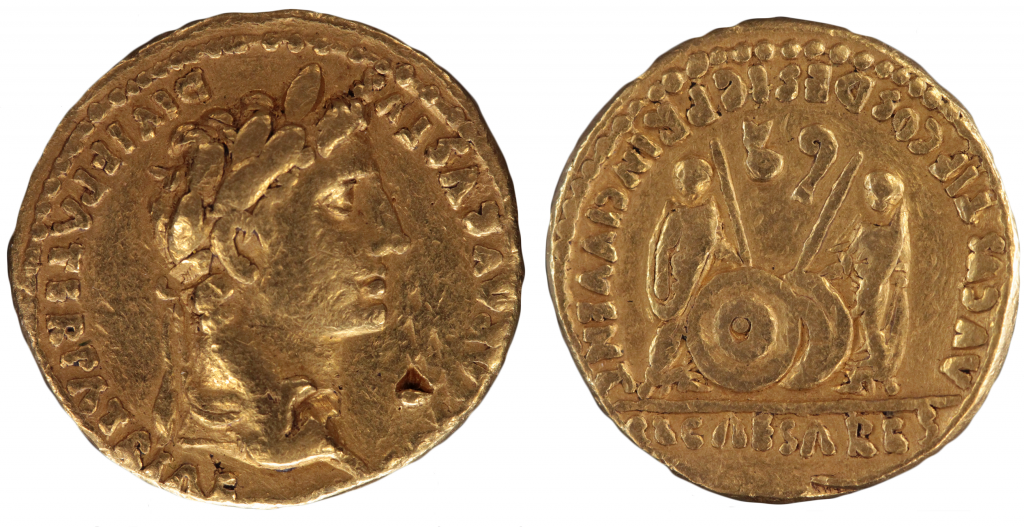August 19, 2015, by Will Leveritt
On this day in AD14 Rome’s first emperor, Augustus, died aged 76 (Part II)
Text by Mike Welbourn
Image © Mint Imperial
In the first part we looked at Augustus’ rise to power. In this second part, we look at his time as emperor.
Augustus thus came to enjoy an unassailable and unimpeachably legal pre-eminence. Beyond establishing a long period of peace and stability after decades of civil war, Augustus undertook a variety of initiatives during his 41-year reign. Many of these tied in with his desire to be seen as a restorer of Rome and her traditions: he built or rebuilt a great many public buildings and beautified the city of Rome; he resurrected various priesthoods which had fallen into abeyance and assumed the headship of many of them; and in 18-17 BC and AD 9 he introduced moral legislation on issues such as marriage and adultery which were designed to resurrect the laudable customs and morality of earlier times. Augustus also reformed various aspects of the political system and even instituted smart, practical policies like providing the city of Rome with a corps of dedicated fire-fighters.

AU aureus of Augustus. Ob. has laureate head of emperor right, [CA]ESAR AVGVSVS DIVI F PATER PATRIAE. Rev. has Gaius and Lucius standing with spears and shields, simpulum and lituus above, AVGVSTI F COS DESIG PRINC IVVENT, CL CAESARES in ex. 7.45g, 18mm, 11 o’clock.
Augustus’ domestic life was at times also troubled. Besides being obliged to exile his daughter Julia in AD 8 for adultery, he also struggled to find a successor to his position. His first choice, his nephew Marcus Claudius, died young in 23 BC. His grandsons Lucius and Gaius Caesar – the offspring of the marriage of Julia and his close friend and ally Marcus Agrippa, whom Augustus adopted as his sons – met the same fate in AD 2 and 4. Finally, he settled on his son-in-law Tiberius, a respected and competent general, but a dour and suspicious man. Augustus adopted him as his son and successor in AD 4.
Rome’s first emperor, who had established a system of stable governance for the sprawling Roman Empire which would last for two centuries met his end ten years later in AD 14 at Nola in the Campanian region of Italy, on 19 August. He supposedly died in the very same room as his biological father, Gaius Octavius, who died in 59 BC. According to the ancient biographer Suetonius he asked his friends to applaud as he exited the stage if they thought he had played his part well, but his final words were addressed to his formidable wife, Livia, whom he asked to be mindful of their marriag
No comments yet, fill out a comment to be the first

Leave a Reply